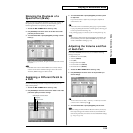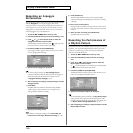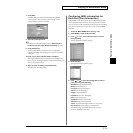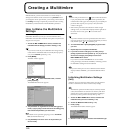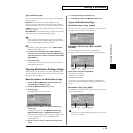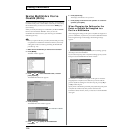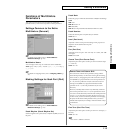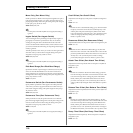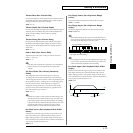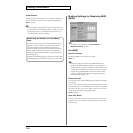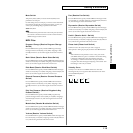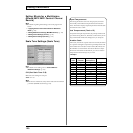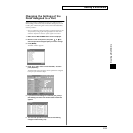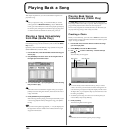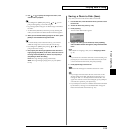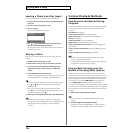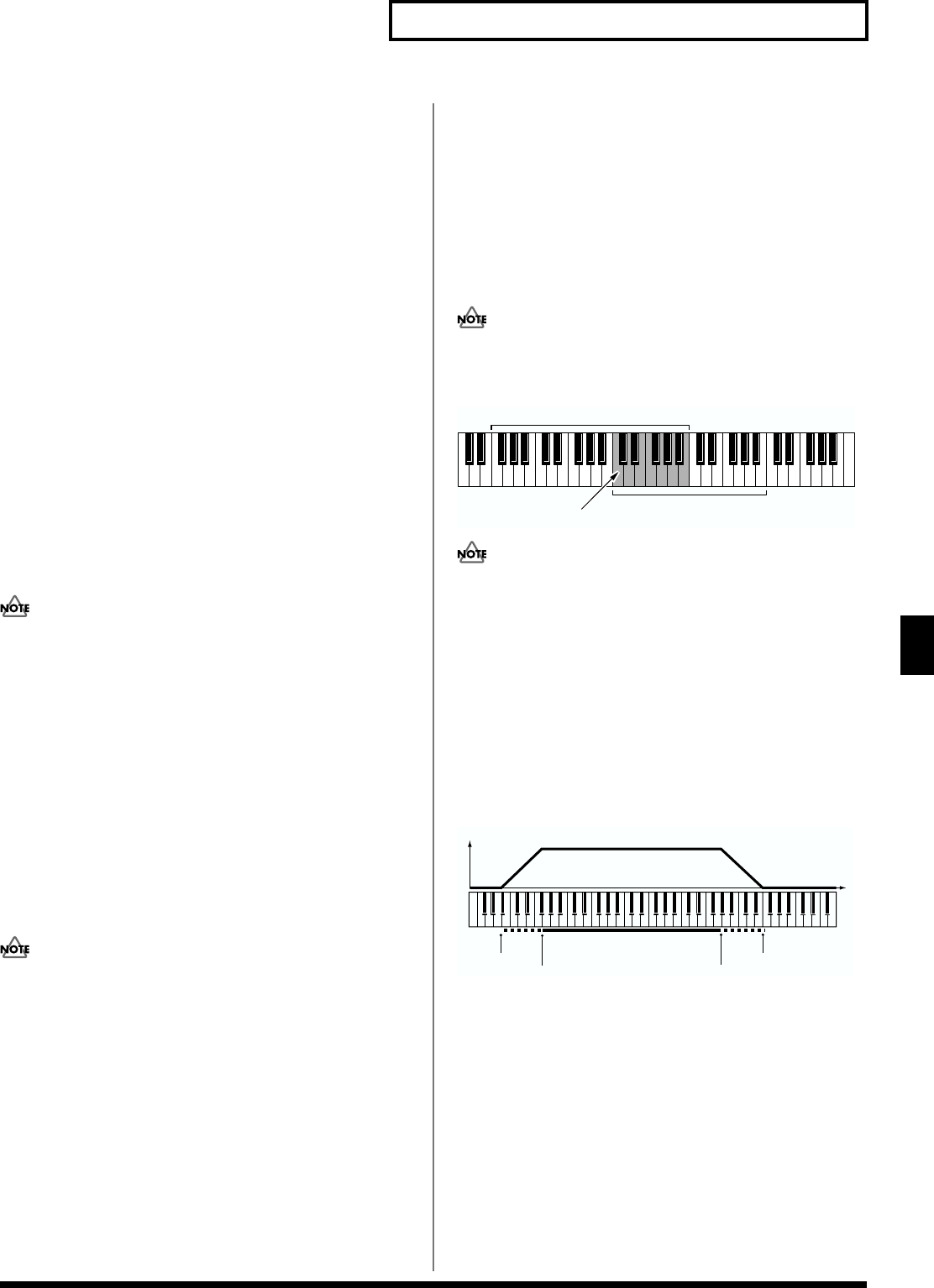
117
Creating a Multitimbre
Creating a Multitimbre
Vibrate Rate (Part Vibrate Rate)
For each part, adjust the vibrato speed (the rate at which the pitch is
modulated). The pitch will be modulated more rapidly for higher
settings, and more slowly with lower settings.
Value: -64– +63
Vibrate Depth (Part Vibrate Depth)
For each part, this adjusts the depth of the vibrato effect (the depth at
which the pitch is modulated). The pitch will be modulated more
greatly for higher settings, and less with lower settings.
Value: -64– +63
Vibrate Delay (Part Vibrate Delay)
For each part, this adjusts the time delay until the vibrato (pitch
modulation) effect begins. Higher settings will produce a longer
delay time before vibrato begins, while lower settings produce a
shorter time.
Value: -64– +63
Octave Shift (Part Octave Shift)
Adjusts the pitch of the part’s sound up or down in units of an
octave (+/-3 octaves).
Value: -3– +3
Note that when a rhythm set is assigned to a part, if the Octave
Shift parameter is set, the rhythm tone that is played also
changes.
Vel Sens Offset (Part Velocity Sensitivity
Offset)
This changes the volume and cutoff frequency for each part
according to the velocity with which the keys are pressed. If you
want strongly played notes to raise the volume/cutoff frequency, set
this parameter to positive (+) settings. If you want strongly played
notes to lower the volume/cutoff frequency, use negative (-)
settings. Set Velocity Sensitivity to “0” when you want sounds
played at a fixed volume and cutoff frequency, regardless of the
force with which the keys are played.
Value: -63– +63
Patches also contain a Velocity Sensitivity Offset setting (p. 48).
The ultimate Velocity Sensitivity Offset value is the sum of the
part’s and the patch’s Velocity Sensitivity Offsets. Accordingly,
if the patch’s Velocity Sensitivity Offset parameter is set to “127”
(maximum), there will be no change in the part’s Velocity
Sensitivity Offset, even when this is set to a positive value.
Key Fade Lower (Part Keyboard Fade Width
Lower)
This determines what will happen to the part’s level when a note
that’s lower than the part’s specified keyboard range is played.
Higher settings produce a more gradual change in volume. If you
don’t want the tone to sound at all when a note below the keyboard
range is played, set this parameter to “0.”
Value: 0–127
Key Range Lower (
Part
Keyboard Range
Lower)
Specifies the lowest note that the tone will sound for each part.
Value: C-1–UPPER
Key Range Upper (
Part
Keyboard Range
Upper)
Specifies the highest note that the tone will sound for each part.
Value: LOWER–G9
When the Key Range (p. 58) is set for each individual tone in a
patch, sounds are produced in the range where the Key Range of
each tone and the Key Range for the part overlap.
fig.05-10.e
If you attempt to raise the lower key higher than the upper key,
or to lower the upper key below the lower key, the other value
will be automatically modified to the same setting.
Key Fade Upper (Part Keyboard Fade Width
Upper)
This determines what will happen to the part’s level when a note
that’s higher than the part’s specified keyboard range is played.
Higher settings produce a more gradual change in volume. If you
don’t want the tone to sound at all when a note below the keyboard
range is played, set this parameter to “0.”
Value: 0–127
fig.Key Range.e
Key range specified for Performance
Key range specified for Patch
The range in which notes will play
Range Lower
Range Upper
Fade Lower
Fade Upper
Level
Pitch



